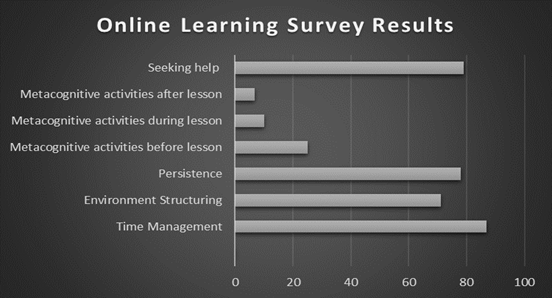Engaging Learners in Online Lessons
BY SHARON MANGOMA (OSFC)
According to Gillett-Swan, Jenna (2017) “Despite previous anecdotal evidence and a prevailing assumption that so-called millennials (with birth dates in 1977-1995 (Neilson Media) have a preference towards technological media, there was a significant decrease in engagement, participation and interaction when this flexibility was provided”. This was also evident for my classes during lockdown. My student numbers depleted significantly during lockdown and even those who attended the online sessions seemed less motivated and engaged than usual. While at the time I put it all down to the effects trying to learn during a pandemic it has since become clear to me that there might have been other factors contributing to this lack of motivation and engagement. This research aims to explore the factors affecting students during online lessons with the intention of implementing strategies to improve student’s engagement during online sessions.
“Self-regulated learning (SRL) is essential for students in online education to be successful” R. S. Jansen et al. (2016). The first part of this research has been completed. At this stage 31 students have been assessed using the The Self-regulated Online Learning Questionnaire Revised Questionnaire. Although, on the original questionnaire items are answered on a 7-point Likert scale, ranging from ‘‘not at all true for me’’ (= 1) to ‘‘very true for me’’ (= 7). For the purposes of this research e a 5-point Likert scale was used instead. This questionnaire is has been revised and validated by R. S. Jansen et al. (2016) their conclusion was that, “The revised questionnaire was found to have improved validity, usability, and reliability.” (PDF)
The Self-Regulated Online Learning Questionnaire was developed to measure SRL in online educational contexts. The scale ‘metacognitive skills’ is split into three subscales: metacognitive activities before, during, and after a learning task. Next to the three scales measuring metacognitive activity, the questionnaire contains scales measuring time management, environmental structuring, persistence, and help seeking.
The results showed that the students had scored very low on the metacognitive skills needed to successfully engage in online session.
Fig 1.

When answering questions on Time Management most of the student (87%) answered True to Very True for “I keep up with my weekly reading and assignments for online sessions. (71%) responded True – Very True for “I find a comfortable place to study” under Structuring Environment. For Persistence (78%) responded True to Very true for “When I begin to lose interest for online sessions, I push myself even further”. The responses were equally high for Seeking help where (79%) of the students responded True to Very true for “When I am not sure about some material in the online sessions, I check with other people” and this included asking peers and teachers. The second part of the research is now underway.
When it came to Metacognition, the responses where very different to all the other sections. Only (25%) of the students responded, Very True for “I set specific goals before I begin a task for my online sessions”, Metacognition activities before online lessons. Dropping down to only (10%) for Metacognition activities during online lessons. The lowest positive response however, was for Metacognition activities after online lessons with only (6.7%) of the students responding Very true to “I ask myself if there were other ways to do things after the online session”. It is clear from these results that quite a bit work has to be done with the students to develop their metacognitive skills and that will form the most part of the second phase of this research.







